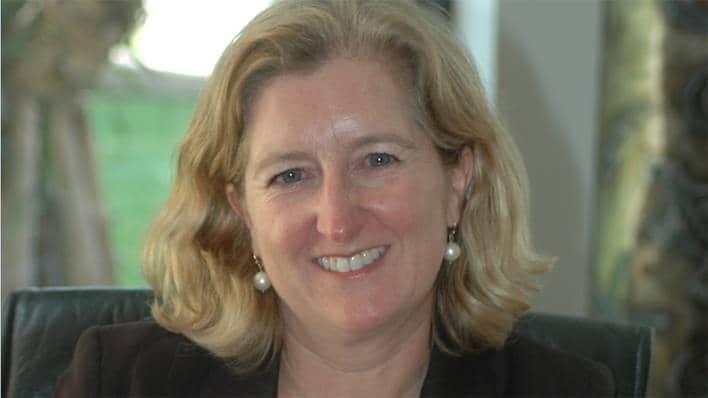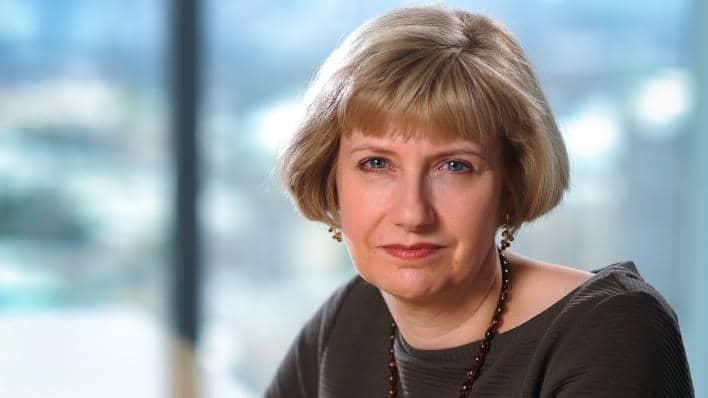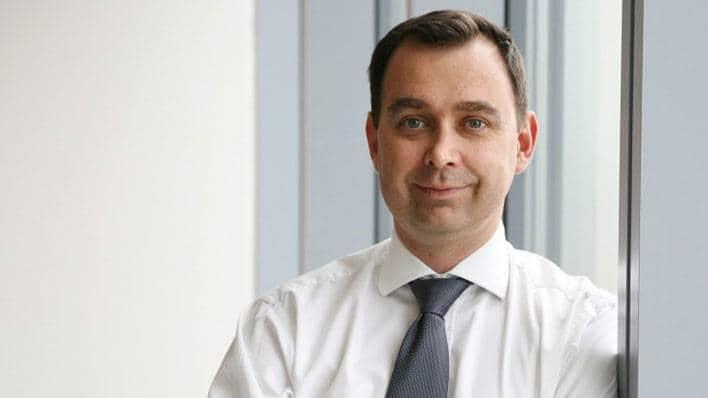
Improving lives in Africa
Susan Payne is leading a unique collaboration between Barclays and healthcare company GSK to transform lives in Africa

Wendy Papworth is Director for Diversity & Inclusion (D&I) and also leads Barclays’ group-wide focus on the gender agenda.
She started her career in client-facing roles, including as an insurance systems consultant with IBM, but as her personal circumstances changed she spotted an opportunity to better balance her commitments.
How is Barclays marking International Women’s Day?
We’re proud to be a founder member of the UN’s HeForShe campaign. Our CEO, Jes Staley, is one of the UN’s Corporate Impact Champions, ensuring gender equality is an organisational priority. Last year our campaign focused on encouraging both male and female leaders from across the business to sign HeForShe pledges, take part in events and become members of our gender network. This resulted in a 122% increase in HeForShe commitments.
This year, we’re taking it a step further and want our ‘supporters to get supporters’. This will include the launch of male ally networks across the globe. These workstreams will be run by men to encourage more men from all parts of the business, and at all levels, to become part of the discussion. We recognise that gender equality is not a female issue alone, it needs to be addressed by everyone in order to create real change.
We also hosted a parliamentary event last week, with Baroness McDonagh to focus on the work government and companies of all sizes are doing to promote and support women in business. It was a candid discussion about what has been achieved, what more needs to be done and a chance to share best practice.
The breadth of activity is reflected in what takes place on a day to day basis at Barclays, from inclusive leadership training, mentoring to return to work programmes.
How did you begin working in D&I?
I started my career as a management consultant, this meant being out on the road and away from home most of the week. After I had my daughter I wanted a lifestyle that was more accommodating of a small baby. A colleague was in a similar position, and a role had come up working on IBM’s gender diversity strategy for EMEA; we pitched a job share and got it. I really enjoyed the work and ended up heading D&I for IBM’s Europe, Japan and Canada operations.
I spent the next ten years focused on D&I before Barclays came calling. It was a great opportunity to work with a passionate team, but would also enable me to work with customers and clients and focus on driving engagement at that crucial business to customer level. Before, I’d really only been focused on business to business engagement.
What does D&I mean in an organisation like Barclays, and can you tell me a bit about the work Barclays is doing to promote gender equality across the organisation?
For Barclays, D&I means focusing on our customers and clients through their lens and view of the world. That’s also reflected internally and means that all employees feel they have a place in the organisation and the same opportunities to fulfil their career aspirations as any other colleague, irrespective of age, background, disability, ethnicity, gender, or sexual orientation.
We’re really proud to have top-down support of our work, especially as we mark International Women’s Day.
More than half of our workforce are female and we’re making good progress towards ensuring we have a better balance of women in senior leadership roles. We’re seeing a year on year increase in the numbers of women at director and managing director levels, which is great. While we have some fantastic role models including Mary Baker, we have more to do, and are focused on nurturing our talent pool – this means support from both men and women at all levels and is the focus of our IWD activities.
How can we do more to build awareness around promoting gender diversity and help to even out the playing field?
We’re seeing an interesting dynamic evolve compared with the one I grew up with. Generally speaking, millennials have experienced equality throughout education, with girls often outperforming boys, but as they enter the workforce there’s a shift. At the most senior levels the corporate world is still dominated by men, providing easily identifiable role models for young men at the start of their careers. Women simply don’t have as many. There’s clearly work to be done. That said, it’s about a cultural shift and promoting equality for all.
Everyone has different requirements and expectations of their job at different stages of their careers, whether that’s parental leave, care giver support or otherwise. Embedding a culture that flexes around such responsibilities and normalises this flexibility is crucial to ensuring organisations maintain and nurture all talent irrespective of gender.
In fact, one of my proudest achievements is working with a group of dedicated volunteers to launch Barclays’ dynamic working campaign. This was born from conversations with our multigenerational group about ensuring a consistent organisation-wide approach that would change mindsets and promote flexible working. It’s had resounding success across the business and has become part and parcel of daily life.
Ultimately, it’s this shift that we’re after – it’s not about looking for the next new shiny thing, but rather, scaling initiatives at the deepest level so they become truly embedded into the way we think and work. That’s how we’ll make real change.

Susan Payne is leading a unique collaboration between Barclays and healthcare company GSK to transform lives in Africa

'The sharing economy' is one of the hottest topics in the business world, but do we really understand what the term means?

Mark Lewis, Managing Director in European Equity Research – Utilities at Barclays, was asked to join former New York City mayor Michael Bloomberg’s Task Force on Climate-related Financial Disclosure earlier this year

Stuart Tootal is Barclays Global Head of Physical Security and is responsible for protecting our people, locations and assets against crime, terror threats and geopolitical troubles